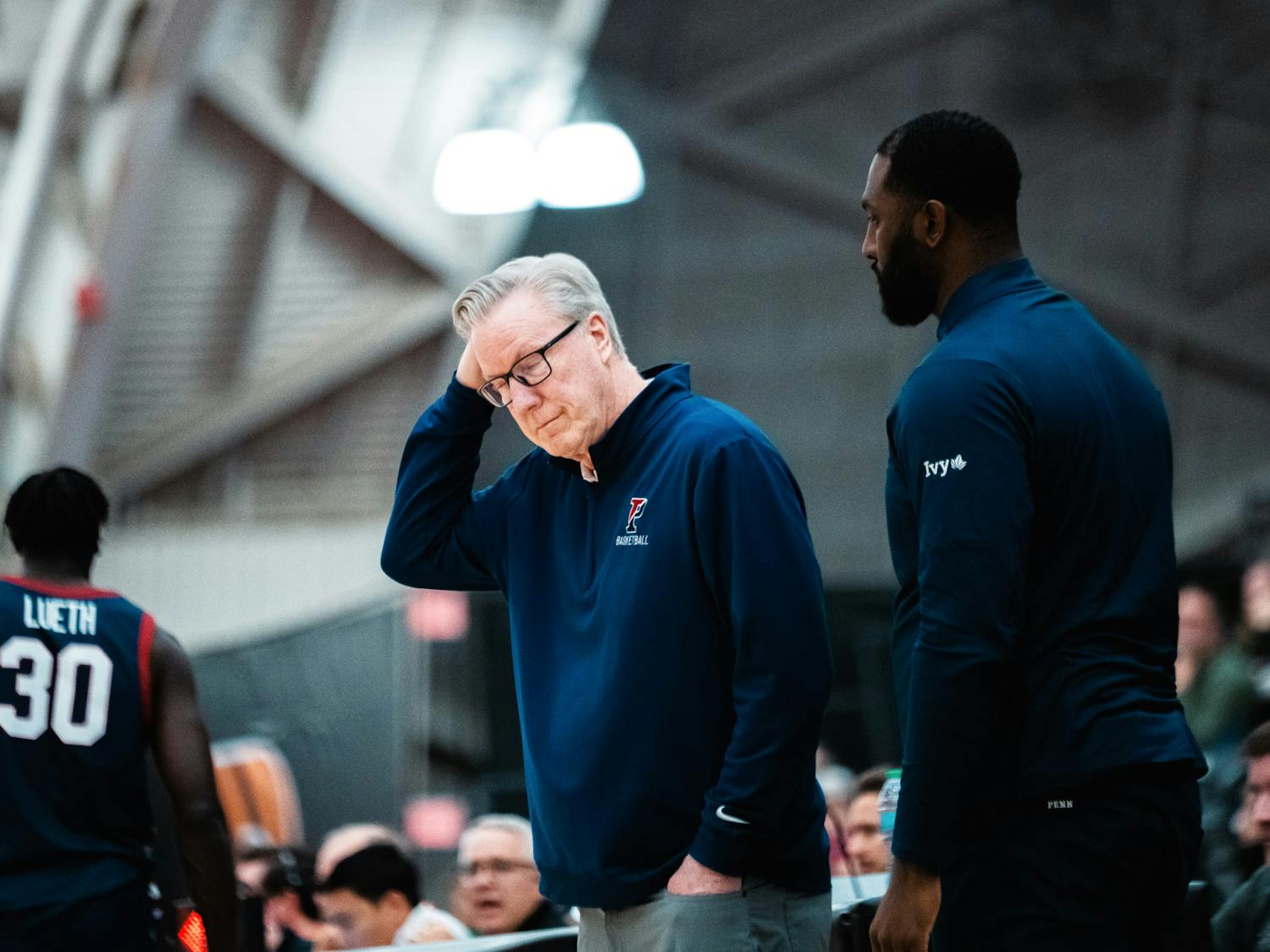On February 8, 1935, Associated Press Sports Editor Alan Gould first used the term "Ivy League" to describe the eight current Ivy schools and Army.
The Ivy League, originally constructed as a football organization, was the first collegiate athletic conference.
Now, the central focus of the Ivy League has shifted to academics, and rightfully so.
At its biannual meeting on Tuesday, the Council of Ivy Group Presidents approved proposals that provide tougher academic standards for incoming athletes and modified an offseason practice rule that limits the number of practice days.
The Council also approved proposals that would limit the total number of athletes enrolled in any four-year period and would require athletes in all sports to meet the average academic qualifications of non-athletes at that school.
While the changes are relatively minimal, they represent what seems to be a continuing de-emphasis on athletics in the Ivy League.
Nevertheless, Penn Athletic Director Steve Bilsky supports the changes.
"Speaking for the Athletic Directors, we were pleased," Bilsky said. "All in all, the presidents acted on the beliefs they feel strongly about, but in a way that should not materially affect the caliber of our athletic programs."
One statute that Bilsky believes will certainly not change in the near future is the lack of athletic scholarships in the Ivy League.
Because of this rule, Ivy League coaches have a difficult time recruiting players that can compete and, more importantly, succeed at the Division I level.
In addition to attracting potential recruits, many students at Penn will attest to the fact that the school spirit generated from Penn's strong athletics program was an important factor in their decision to enroll.
By limiting the number of recruits, the Council has made it that much harder for Ivy coaches to put together quality squads. Furthermore, the limited number of practice days further diminishes Ivy teams' ability to compete outside of the Ivy League.
Raising the Academic Index, a formula that uses potential recruits' standardized test scores and grade point average to determine their eligibility, is a good thing in terms of getting only the best student-athletes in the country. But without scholarships, and with a decreased number of recruits, it further reduces the size of the potential pool of athletes that can be recruited.
If the Academic Index continues to rise, perhaps athletic scholarships should be considered. After all, Penn is not the only school ranked No. 4 by the U.S. News & World Report -- so are Stanford and Duke. Yet these non-Ivy League schools consistently produce some of the best athletic teams in the country while still maintaining a high academic reputation.
But let's face it: Bilsky is right. Athletic scholarships will not be offered in the Ivy League any time soon.
Therefore, the Council must compensate for this.
If the Ivy presidents truly want sports teams to compete outside of the Ancient Eight, then limiting the number of recruits for Ivy League teams is senseless.
Unfortunately, however, it makes all too much sense.
Penn President Judith Rodin stated on January 14 that some Ivy League Presidents think it's a "problem" when Ivy League teams win NCAA Championships.
In the Penn-Harvard men's basketball game played on Feb. 21, the number of Quakers fans was significantly more than the number of Crimson fans. A friend of mine at Harvard, a big professional basketball fan and sports fan in general, did not even know about the game. This would not be surprising, if it were not for the fact that the game was played at Harvard.
While all eight presidents may have been in favor of Tuesday's legislation, clearly athletics plays a larger role in the students' experience at Penn than, for example, at Dartmouth. But the legislation affects all eight schools equally.
Bilsky noted that "there is no way to legislate effort and performance, two qualities that make for good recruiters and separate schools from one another."
"Recruiting ability is a quality we look for in hiring coaches."
But how far can recruiting ability take you without athletic scholarships and with a decreased number of recruits?
There can be a balance achieved between academics and athletics.
Penn men's track junior Brian Chaput placed first at the NCAA Championships last weekend in the javelin throw. On Tuesday, he was named Verizon Second-Team Academic All-American.
At the end of the Ivy League's press release, the report states that the "Ivy League is the only conference whose entire membership was identified as having superior graduation rates in the 2002-03 Sports Illustrated review of all Division I athletic programs."
As more and more athletes leave college early to enter the Pros, this is now, more than ever, quite a great achievement. But it will become meaningless if the athletes we graduate can no longer compete outside of the Ivy League.
Athletes that come to Ivy League schools sometimes sacrifice athletic scholarships in order to attain a first-rate education.
"We've always felt that, if you're good enough, the pro scouts will see you at Penn," Bilsky said, commenting on the four Penn baseball players who have signed this year and on the possible NBA draft pick, Ugonna Onyekwe.
But if there continues to be a de-emphasis on athletics -- a decrease in the number of recruits and practice time -- the next Onyekwe may not enroll in an Ivy League school.
The Ivy League's press release boasts about the 12 Academic All-Americans it produced this year.
This does not mean that only 12 student-athletes maintained an excellent academic record. In fact, the GPA requirement to be eligible is 3.2, a mark which numerous Ivy athletes achieve. The other main prerequisite for the award is exemplary athletic talent.
The Ivy League brags about its number of Academic All-Americans. But, due to the dwindling number of recruits capable of fulfilling the athletic component of the award, they're shooting themselves in the foot with this new legislation.
The Ivy League may just have to find a new statistic to flaunt.








